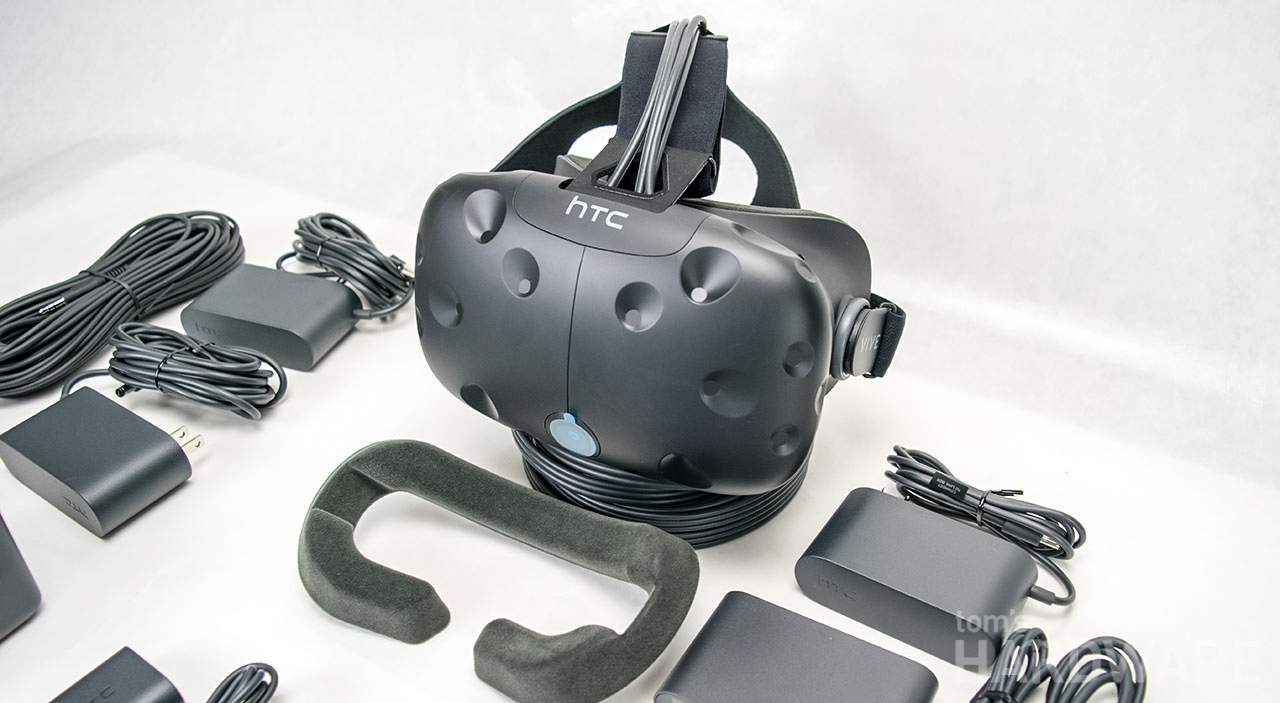Valve Licensing Its VR IP To Other Hardware Makers
In a huge move, Valve announced that it’s licensing more of its VR technology to other hardware makers who can in turn build third-party VR devices. Valve already licensed (for free) its “sub-millimeter room-scale tracking and input technology,” but it’s adding the following the list:
-Advanced optical system-Manufacturing and calibration tools-Supporting software stack to unify the hardware into an optimal user experience
Curiously, Valve spent a large chunk of its emailed press release discussing LCD versus OLED display technology, seeming to favor the former.
"Recent advancements in Liquid Crystal Display (LCD) technology combined with VR specific calibration now make it a viable technology choice for high end VR systems. LCD manufacturers have demonstrated fast-switching liquid crystals, low persistence backlights, and high PPI displays that, when calibrated and paired with the right software, are well matched to the highest quality VR experiences," read the release in part.
This is particularly notable because whereas the first generation of VR headsets (Vive, Rift, OSVR) all have OLED displays, only one of the impending Windows Mixed Reality HMDs has one. The rest of the WMR HMDs all sport LCD displays.
Even so, Valve hedged by noting that it “has developed custom lenses that work with both LCD and OLED display technologies and is making these lenses available to purchase for use in SteamVR compatible HMDs.” Also note that these “optical solutions” support field of view (FoV) between 85-120 degrees and are “support the next generation of room-scale virtual reality.”
Making More
It’s hard to overstate how important this move is for the burgeoning VR market. With this move, Valve can open up hardware development to any number of OEMs who can take the established basics and build on them. In a perfect world, the result is that we’ll see hardware makers build HMDs that support SteamVR titles and all the feature therein, but improve or innovate upon others.
Get Tom's Hardware's best news and in-depth reviews, straight to your inbox.
That means we could be in for a greater number of VR devices, with a wider range of features--and hopefully, more price points.
Microsoft’s Influence
In a less heavy-handed way, this is very much what Microsoft is doing with its Windows Mixed Reality strategy.
Microsoft defined a range of specifications for “mixed reality” HMDs (although for now they’re all essentially just “virtual reality” HMDs) as well as two tiers of PC specifications to support them. The company handed that over to its regular cadre of PC hardware partners, who in turn have built/are building headsets to run on the Windows Mixed Reality platform.
Basically, Microsoft wanted a piece of the VR market and used its influence, IP, and marketing prowess to carve out for itself what could become a large chunk of that market. It’s using other hardware makers to create demand for its platform.
Similarly, that’s what Valve is doing. SteamVR is chock full of VR content--it claimed 2,000 SteamVR-compatible titles in a press release--and it needs more hardware partners to build compatible devices. Apparently, the HTC Vive is not enough.
By licensing its tech, it’s hoping hardware makers will build SteamVR-compatible headsets, just like Microsoft wants hardware makers to build Windows Mixed Reality-compatible headsets.
Twist!
However, there’s another layer to examine here, because Microsoft is working with Valve to port SteamVR to the Windows Mixed Reality platform. Thus, although it’s tempting to see this licensing move on Valve’s part as direct competition to Microsoft’s platform goals, they’re potentially quite complementary.
It would actually make a great deal of sense for Valve to license its hardware IP to hardware makers building for Windows Mixed Reality. That would put its hardware and software IP onto a whole slew of new devices.
Who Owns The IP? Valve Owns The IP
This announcement seems to answer question we’ve had for quite some time, which is: Who owns all this VR IP, HTC or Valve? There was a long stretch where it didn’t really matter, as far as consumers were concerned, because SteamVR ran only on the HTC Vive, and the Vive ran content only from SteamVR. Now that Microsoft is doing a cannonball into the VR pool, and there are promises about untethered VR HMDs on other platforms, though, it’s crucially important.
To be frank, we never thought to even ask that question until GDC earlier this year, when LG showed us its own take on an HMD and tracked controllers. The company worked with Valve to build it, and it seemed to have much of the same DNA as the HTC Vive, albeit with some of LG’s IP inside.
It showed that Valve and/or HTC were toying, at least, with the idea of licensing some of its tech. But that only makes sense for the owner of that IP. If Valve owned the IP, then that meant HTC was getting shafted a little. Which is apparently the case.
On the other hand, in order to dominate a market, there has to be a market, and for all of the progress that VR has made over the past 18 months or so, there remains no guarantee of its permanent, prolonged success. Thus, HTC’s success with the Vive may depend in part on the existence of a larger market.
If you want to be part of Valve’s licensing program, you can reach out to the company via this email address.
Seth Colaner previously served as News Director at Tom's Hardware. He covered technology news, focusing on keyboards, virtual reality, and wearables.
-
remosito Awesome news. Maybe somebody more apt will step up to the plate and deliver a real home run.Reply
Seeing as HTC hasn't exactly done a lot with what Valve gave them and can't even be arsed to give us higher res display versions.... -
Jeff Fx Reply20257720 said:Awesome news. Maybe somebody more apt will step up to the plate and deliver a real home run.
Seeing as HTC hasn't exactly done a lot with what Valve gave them and can't even be arsed to give us higher res display versions....
It's too early for them to come out with a new model, while there's no competition present. HTC isn't in good enough shape to make their first headset obsolete before it naturally is because of competition.
The real problem with HTC is their support. Many Vive owners will jump ship as soon as a better headset with lighthouse tracking is available.

